The Metamodern Way of Resistance
What I learned from a 21-day social media fast and culture cleanse
But, wherever a man goes, men will pursue and paw him with their dirty institutions, and, if they can, constrain him to belong to their desperate odd-fellow society. It is true, I might have resisted forcibly with more or less effect, might have run "amok" against society; but I preferred that society should run "amok" against me, it being the desperate party.” —Thoreau, Walden
Note: Throughout this essay are pictures of life away from social media. Mainly, they are of my daughter and I on boating adventures. I explain later that, in April, she got her first kayak.
Brace yourself for another annoying reflection about what someone learned during a social media fast. I meant to get this out a lot sooner but have had a busy past few weeks. I did not know this had become a subgenre until recently when I came across a note on substack where a woman wrote that she’d rather read about the life cycle of mollusks than read another post about what someone learned while taking a break from social media.
Days into my fast, one of my favorite substack writers announced that she was taking a 30-day social media break. I just assumed that she and I were riding the same cosmic wave. Though I haven’t read any other substack essays on the topic, I do realize now that it is a thing. I wonder how I missed the movement? Maybe I am already less engaged in socials than I previously thought. I do read books on the subject but clearly do not have my finger on the pulse of the current substack zeitgeist. Will this essay not live up to its potential virality because I am missing the corresponding hashtag? My anxiety is back.
I had lots of questions for the lady cutting down mollusks, a fascinating phylum of over 76,000 extant species ranging from terrestrial creatures like snails and slugs to a wide variety of marine species as dynamic and varied as squids and scallops. After reading her note, I began to wonder what baby clams look like. Are they just a smaller version of adult clams? How are they even born? I imagined that there might be a correlation between her seeming defense of social media time (maybe she was just tired of hearing people brag) and her lack of awe concerning mollusks.
My feeling about mollusks is: if you don’t care about them, you can get the fuck off of my page.
April was the most refreshing, revolutionary month of my adult life. Deleting social media apps from my phone for over a month, just living through the dull and spirited moments of existence, was like metamorphosing into an unfamiliar version of myself. I am always aware of how glorious the living planet is, but in April, I noticed it more often and felt its presence more closely. I felt myself as an extension of nature and found my true place in the springing forth of life. The fact that social media is a manipulative tool used by self-serving designers to collect data, and perhaps to enslave and brainwash people into a doldrum of advertising hell, became a little clearer when I separated myself from daily use and began to think about what that daily use really means.
To summarize my experience before breaking it down, after a few days, I felt my general anxiety dissipate. I enjoyed many glorious quiet moments and trained my hand not to reach for my phone. When inconveniences arose, as they do, I thought intently and did not turn to the screen for a dopamine hit in an uncomfortable moment. I went for walks to untangle my emotions and felt healthier, better in my body, for my efforts. I felt less distracted in writing hours and wrote more than normal. I read more than normal too. I felt my faith in humanity returning. Without media there to warn us about how terrible people are, how terrible are they? I find most people to be quite pleasant, quite caring, and I was able to see this holy nature in others more often. Without my ear buds in, I noticed lots of folks smiling and nodding at me in the grocery store one day—this was the first time in years that I hadn’t worn ear buds while grocery shopping. Had the ear buds always presented such a barrier? Outside the grocery store, the fabric of the earth lives and breathes as a magical poetic code. Is this a simulation? God’s dream? Something else we can’t imagine? How will we find out sitting in our cars, worried about the economy, playing block blast or whatever the fuck?
Before we go deeper, let’s step back and enter this beautiful realm with a word of warning. My initial reaction, hours into my fast, was to judge others for their phone use. On day two, I walked into a coffee shop, and upon seeing people on their phones, whispered “plebeians” to myself. As someone who has used social media daily for twenty years, I naturally became, hours after renouncing it, Thoreau at Walden Pond. Or Ted Kaczynski wearing the They Live glasses. Whatever you’d prefer.
The original point of my experiment was not just to disconnect from the anxiety induced by social media apps and media in general, it was to reconnect with the sacred aspects of life, including, hopefully, seeing the best in others. Right off the bat, I became an uppity ambassador of my cause. I escaped Plato’s cave and looked back into the darkness mockingly.
I, like anyone, judge people regularly for anything I find repulsive, though I make an effort not to. The difference here is that I’ve never bought into a value set enough for it to become my full identity. I am agnostic about most things but not social media. Perhaps the genuine belief that cell phones are the worst calamity to befall humanity propelled me into an expedited sense of superiority.
After a couple of days of praising how awesome and cool I was, I tried to readjust my aim, reminding myself of my initial goal. Intervening in each moment when I judged someone for not being as brave or enlightened as me made me think of how easy it is for the ego to take something good and transform it into a sense of righteousness. All addictions, especially our own, should be treated with compassion. The real path to liberation is not pity for the poor but subversion of the system of imprisonment. Social media’s baseline appeal is the human tendency toward judgment. Now that I was not scrolling, caught in a loop of constant labeling and perpetually measuring my own experience against what I saw, was it time to try to separate myself from judgment in general?
This never came easy of course. I returned to my day job a week after starting the fast to find my students strung out on their screens. I am naturally quite preachy in the morning, so for the first few periods of each day, I easily became the crotchety old man at the front of the room providing supporting details on how cell phones are ruining education and everything else good in the world. After a few days’ rants, pointing each time to myself as someone beyond the grasp of the matrix, seeing my students’ long faces, I decided to hold my tongue. I was reminded of the truth of the law of attraction when, after days of not mentioning the dangers of social media, students started asking me how my fast was going.
Change is the nature of reality. It can be unsettling. But change we create for ourselves, especially when we defy dopamine addiction, can be rewarding. During my fast, I contemplated why I had never made this change before. How had I allowed social media to rope me in so effectively for so long? I supposed the intentionality of having a specific break period made the difference. I committed myself to 21 days and announced this on social media. Had that been the only motivator that made this break possible? How ironic and sad that I might need social media to supply the extrinsic motivation to break from social media. I had written a whole substack essay about it and had no choice after that.
Though I have deactivated my facebook account at least ten times over the past several years, stepping away from social media completely has always felt like a kind of death I wasn’t yet prepared for—like disappearing from people’s visibility might be too close to actually disappearing. Perhaps this fear was driven by the fact that, for the past ten years, I have lived a relatively isolated life in a rural place. I don’t see friends as much as I used to, even if most people I interact with on social media are people I rarely if ever see in real life. Now in my late 30s, maybe I am less afraid to disappear, finally realizing there is no one left to impress, no real need to do the work of regularly showing up in that space, which feels increasingly superficial.
The basic trap, the basic lie, of social media, especially for young people, is that if you do not participate, you will fail to be relevant. But at what cost? Participation in the digital realm necessarily means we are less present, less participatory, in our own lives. I don’t think I’m making this more dramatic than it is; it’s an existential matter. How willing are we to be present through the suffering, monotony, and real drama of our lives? The true gift of tech might be the radical shift that comes from stepping away. Instead of feeling insecure, like I was missing out, the whole world opened like a lotus. I saw everything as new and enticing. I’m not sure how long this feeling would last without social media. In a sense, so much wasted time online allowed me to be reborn into the real world in an exciting way. In a way, I am grateful for that wasted time. Prison is a prerequisite for liberation.
We can never really leave culture behind because culture has tamed us and made us who we are to some degree. Social media is a kind of condensed version of the conditioning that society normally offers. It amplifies every natural anxiety that comes with participating in the world simply by subjecting the viewer to visual representations of too many people’s lives. And obviously it goes far beyond just that. It is only natural to compare your life to others; what is unnatural is having so much material for the comparison.
Then there is the anxiety of presenting your own life as content to be consumed—the monetary crux of the social media exchange. We suit ourselves up as brands to be bought by both our actual friends as well as strangers. We try to either be controversial (another word for relevant) or to appeal to all of humanity. This work, unnatural and unnecessary, interrupts the simple joy, or the simple misery, of living. As if regular societal comparisons were not stressful enough. One of the great advantages of maturity is supposed to be caring less about what others think, but even many older folks I know spend lots of careful attention manufacturing and worrying about their online image.
As any cliched counter might add, social media has its upsides, but we are here looking into the darkness, into the prison, which I’m afraid houses far too many of us. As I explained above, life on social media (emulated, mediated life) has a way of feeling like the only option. The idea of not being present on it probably feels quite unnatural to some people at this point. But we have to recognize that this is what civilization does. It introduces some new technology that plays on human desire and convinces us that this new way is the only way. But our society is profoundly sick, depressed, distracted, divided, and full of rage. Why would we trust what it sells us?
I have been reading Christopher Ryan’s book Civilized to Death, which explores, quite beautifully, the lie that modernity tells us about pre-history—that life before the dawn of agricultural, religious, and political hierarchies was, in the words of Hobbes, one of civilization’s most vehement defenders, “nasty, brutish, and short.” Ryan lays out how anthropological evidence suggests something altogether different about hunter-gatherer life—that prior to the rise of agricultural states, long before the advent of many technologies we believe we cannot live without, people enjoyed lengthy lives full of nutrition, community, and laughter. Civilization, the concentration and organized collection of power, is what invented slavery and sexism, colonized the world, massacred whole indigenous races, and created more diseases than it has cured. Like Aldous Huxley once noted, “Medical science has made such tremendous progress that there is hardly a healthy human left.” We must question the idea that something is good just because it is technologically advanced. We were born into a wild earth that was designed not only to eat us but also to care for and sustain us. Most of what we claim as the markers of progress only enslaves us, keeps us from our natural-born freedom.
I started out calling this experiment an “anti-civ fast” but decided after a while that what I was actually doing was taking a break from culture, specifically from media culture. To be truly anti-civilizational, I would’ve had to live in the wild for three weeks, eating only what I could forage, not participating in the vast, deeply-ingrained structures of society. While that sounds like an exciting, more fundamental paradigm shift, I still had to go to work during this time, and so, was still participating in social norms. I decided to give this project the more appropriate title of “culture cleanse.” Also, I’m a sucker for alliteration.
Tuning out from the voices that society regularly offers is profound enough. Although I still had to hear some of the “news” by word of mouth, for 21 days, I did not subject myself to any news media nor any social media. I did allow myself to watch youtube videos a couple times daily, mainly the educational or self-help kinds, prompting searches on why modernity is bullshit. I also allowed myself to read substack articles that were not too political in nature, turning away from one of my favorite writers, who, since the election of Trump, has become a full-time political analyst. For a brief period at the beginning, I found myself scrolling through substack notes, which, make no mistake about it, are born of social media hell. I did not discover the mollusk lady until my fast was complete, and she, among many others, made me regret ever returning.
One thing I missed about consuming news media was feeling the impending collapse of civilization. It’s clear that many of us desire to consume alarmist media—and that some of us thrive by way of negative headlines. This is always clear to me when I make my way to facebook and see mothers of my childhood friends sharing the most awful news story they can find, usually about child abduction or murder, putting their two-cent stamps in a caption, something like, “This is so awful.” Thanks for that, Martha. If there are no local stories, best bet they will find some terrible news from the Great Lakes region or from (maybe their favorite) the west coast. The obvious but implicit idea they really want to share is: society is going straight to hell. And maybe they’re not wrong, but I don’t think the truth is so simple. My fix is to generally look for stories pointing to the large-scale failures of what we call culture or civilization in general. The hunter-gatherer or anarchist in my heart loves this.
There are those who might argue that in order to battle and change culture, one needs to be hyperaware of what’s happening. To that notion, I would ask, how’s that going for you? In my mind, the only way to create a major shift in our societal paradigm is for people to find ways to regulate their nervous systems and to detach from—in others words, become unaffected by—the sensationalist paranoia mechanisms commonly known as the news. The inherently good thing about our system is that we the people are the power brokers. Our institutions only stand on our collective belief in them. The bad news is, they are awfully good at employing the modes of persuasion. If we could simply tune out, not join, put our resources back into building up our communities, into real, reliable local systems, our oppressors would be powerless, and we would have the stoic wherewithal to say no and mean it.
There was a dietary aspect to the cleanse also, which ended up being the hardest thing to stick with, especially after I returned to work. I generally try to avoid processed food but for 21 days, I really tried to avoid it. Other than breaking down once and eating some (probably gmo) tortilla chips, I was successful. I also tried to avoid complex carbs and sugars and mainly—keeping some secrets to myself—did that. If we are to reject this culture, I think we have to start with its toxic foodstuffs. But that is largely for another rant.
The other aspects of the fast were commitments to daily writing and reading time, a daily journaling, prayer, and gratitude practice, and daily exercise. Basically, I wanted to be less entertained and to force myself into silence especially when I felt the need for distraction. I also grounded outside daily and one of my broader aims was to spend more time in nature. I did not watch movies or TV, but instead, wrote at night like a puritan housewife by electric candlelight. This might seem like a lot to take on at once, but most of these practices are things I try to commit myself to daily anyway, and considering that my average daily screen time before that fast was around four hours, I found myself with plenty of free time.
Reading and writing are the correct flow and pulse of cultural information. Reading, I am convinced, at least for me, provides the proper pace to learn about the world and to be entertained. Reading, this day and age, is counter cultural and basically revolutionary because it stands as a slower method of learning and receiving information as compared to the bewildering and alarming pace through which most people now receive information. Also, it is true that less and less people read, so I see reading as a holy act—as me keeping alive a noble cultural tradition.
I ended up spending a lot of time outdoors with my daughter. Excited about warmer weather, we played baseball in the yard, went on long walks around the farm, planned and worked on our garden, identified wild flowers, and talked about getting out on the water. Lula said she really wanted to go kayaking with me, and I agreed that the time had come for her to get her own boat. A couple days later, we got her outfitted with a $100 beginner kayak and paddle from Walmart and a new life preserver. Each week of the fast, we went to one new water spot, a couple of ponds on a local wildlife refuge and a nearby creek that runs into a lake. She loved every minute of it, and, being a pisces child, was a natural. Even though she’d probably be more at home in the water than on top of it, she didn’t fall out of her boat once. Since then, she and I have been to the mountains in north Georgia to visit some friends where she rode her boat across rapids for the first time on the Etowah River and paddled under a gorgeous waterfall. All of this is great except that I now have a rapids junkie on my hands.
One of the saddest aspects of the overuse of social media, and of our ever-internet-connected/entertainment culture in general, is how we tend to tune out from loved ones. Even sadder is the idea that a child might be competing with a smartphone for their parent’s attention. People were busy enough before the advent of smartphones—now they are never not connected. Where we once left our jobs at the end of the workday, people now live, thanks to notifications and work emails on personal devices, constantly tethered to the various aspects of their lives. It takes courage and possibly stubbornness to refuse participation in this absolutely abusive way of life, which everywhere is taken as normal. One of the best moves I have made since the fast is to permanently disable all notifications on my phone. It feels good, even like being liberated, to be done with the dings forever.
Perhaps the greatest part of having extra time, other than spending a lot of it with my daughter, was not being distracted as the earth warmed and life sprang from the ground. There is a quiet country cut-through road that begins across from the busier highway at the end of our driveway. There, every spring, the ditches become the stuff of raw impressionist inspiration. Dozens of wildflower species paint vibrant swaths along the roadway. Beside the road on either side are open expansive fields also full of clovers, verbena, crows poison, buttercups, and many other marvelous vibrant families. The absolute most freeing experience I felt during the fast was being there to witness this and not having to share it with the world. I know of course that I never have to, but normally, I would have at least shared a picture of the flowers, probably with some cute caption, to my instagram story. Picking up my phone to do so one time then realizing I couldn’t was like a weight lifting off of my shoulders. I became more and more fond of that feeling the more beauty I witnessed in April. To hell with society; these flowers were for our eyes.
You may think I’m being dramatic, but I don’t think so. Being too connected to the digital realm and less connected to the living earth, to your family, and most importantly to yourself, is a life and death-type situation. If attention is the most basic form of love then it is possible that our smartphones, and the many reasons that we are tied to them, are the Anti-Christ. The developers of these things are like demons leading us to the feet of the great deceiver. I really do believe that social media, being the most potent of all the addictive forces in the entertainment metaverse, is quite evil in that regard. It is meant to rob us of our time and attention of course—most people now realize that—but worse, it steals us away from an appreciation of simple beauty, from knowing and feeling our surroundings, the only home and time we have. It takes away from us our true inherited relation to life, and with that, our faculties for inspiration, solitude, and original creative thought. It bombards the natural pace of life. In my estimation, there is nothing so dangerous and dreadful as this kind of distraction. It isn’t the life that I want, and I pray it’s not the life my loved ones want. If we want to save the planet, save ourselves, make the world better, we can’t forget about the world. We can’t abandon it.
Taking a break from social media now and then seems simple. And I was pleasantly surprised that it was simple once I made the commitment and got started. But how many people, for reasons I’ve discussed here, will never try? I hope that you find it within you to resist the colonization of your attention, to take your love back, to rediscover the kind of inspiration that only comes in quiet times. I hope we can all resist the urge, from time to time, to be entertained, distracted, and divided. In my mind, this the greatest hurdle to a better world.
I never want to go back to the hell, to the anxiety of mindless scrolling or of worrying over how I present myself online. I have enough to worry about with what is in front of me. With a mind designed to eat berries in a cave, I hope to someday eat berries in a cave. Like my beloved forefather, Thoreau, I hope to continue to reduce life to simple terms. Life is much too precious a thing to be wasted.



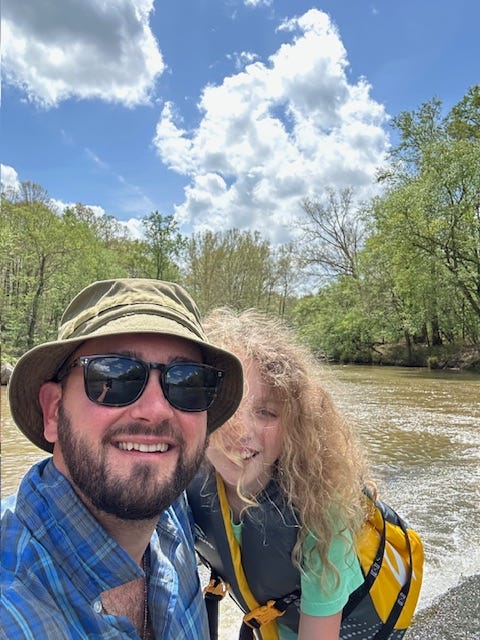
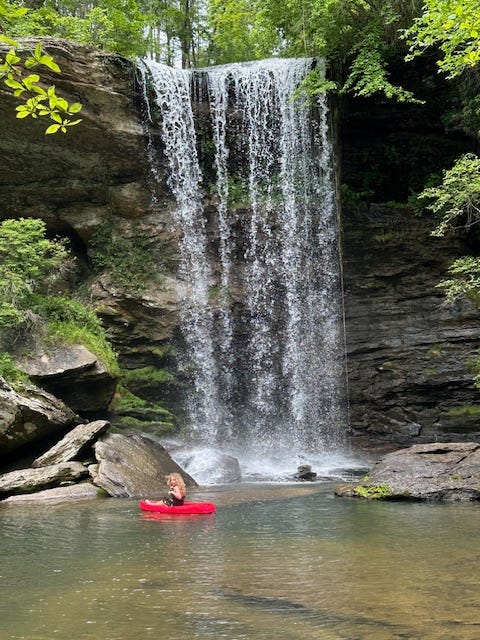
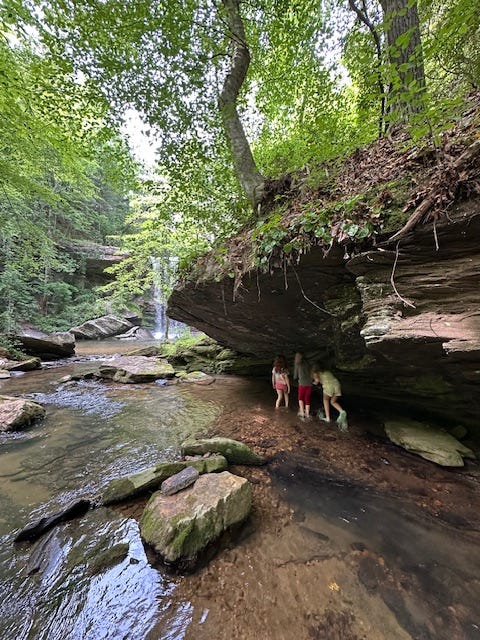
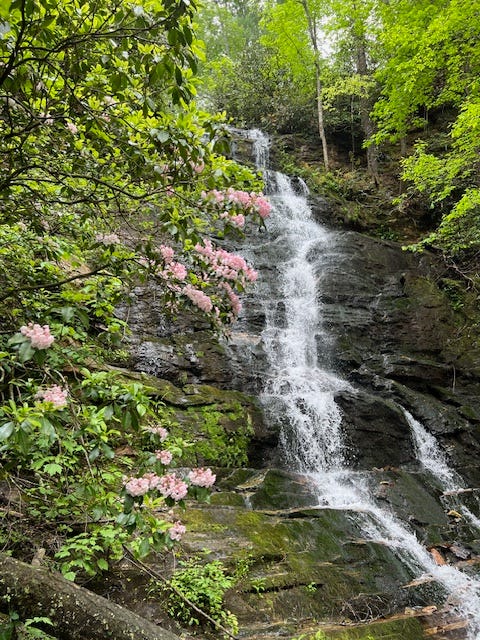
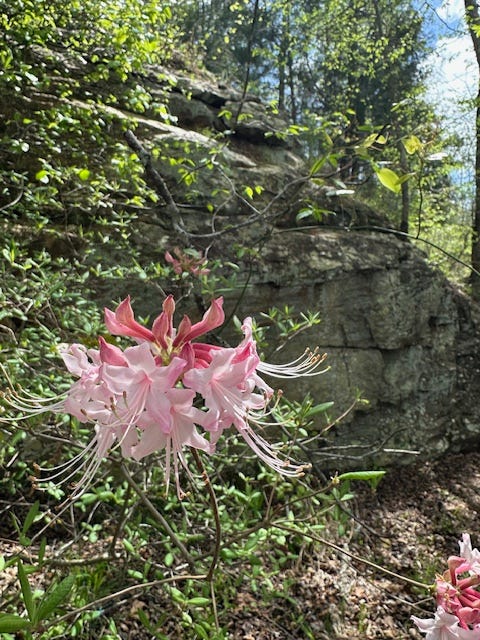
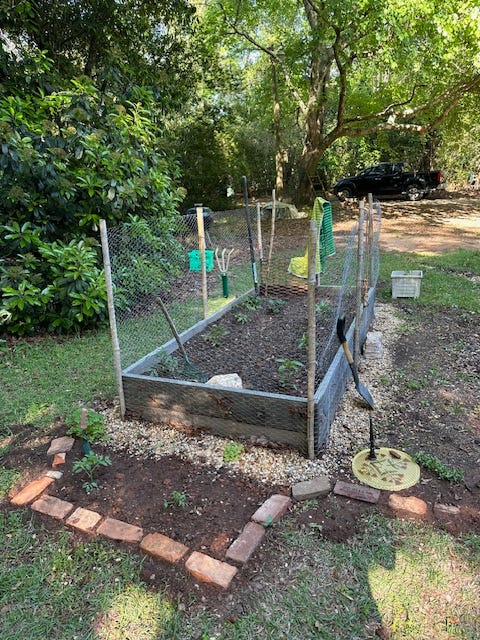
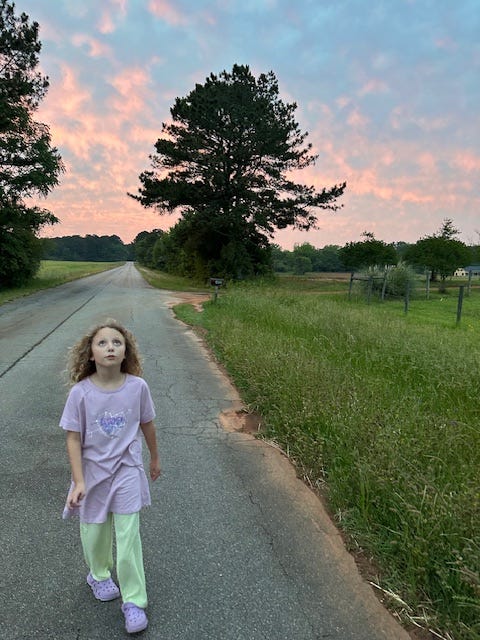
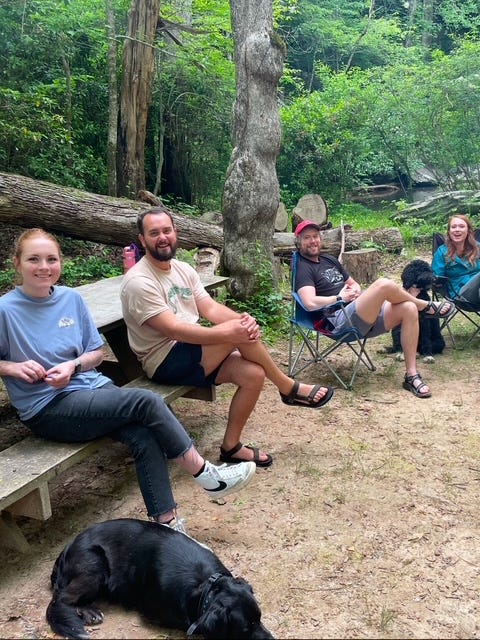
I try to " FAST " whenever I can, especially with so much negativity in the media. At least I don't have a smartphone that I feel compelled to check every 2 minutes, I'm not on Twitter / X, FB / Meta or Instagram.
I don't have a smartphone and hope I don't need to ever get one (more and more services now make things difficult to do without a smartphone). Since leaving Twitter I've been on social media much less (though I'm still on Facebook and do use BlueSky and obviously Substack!).